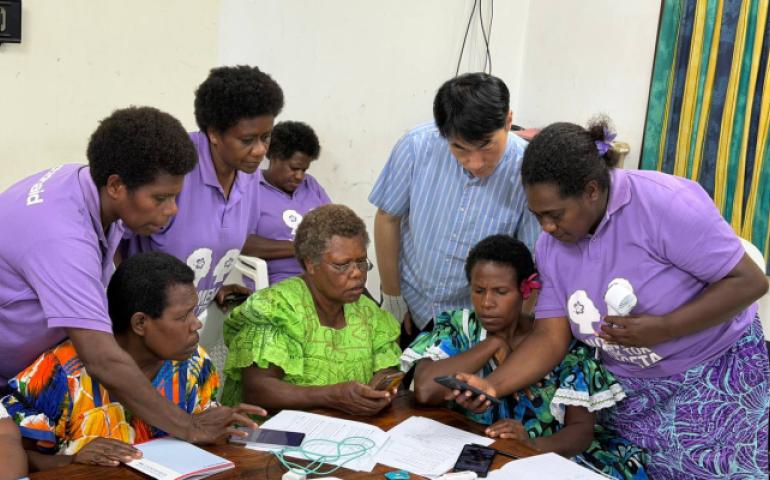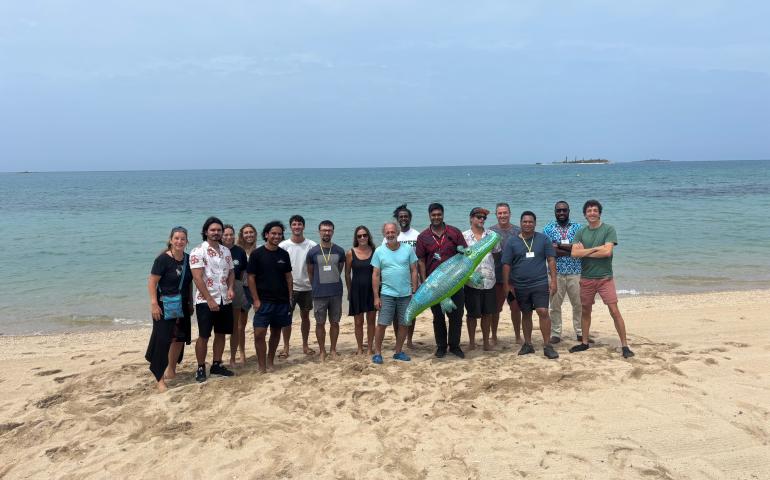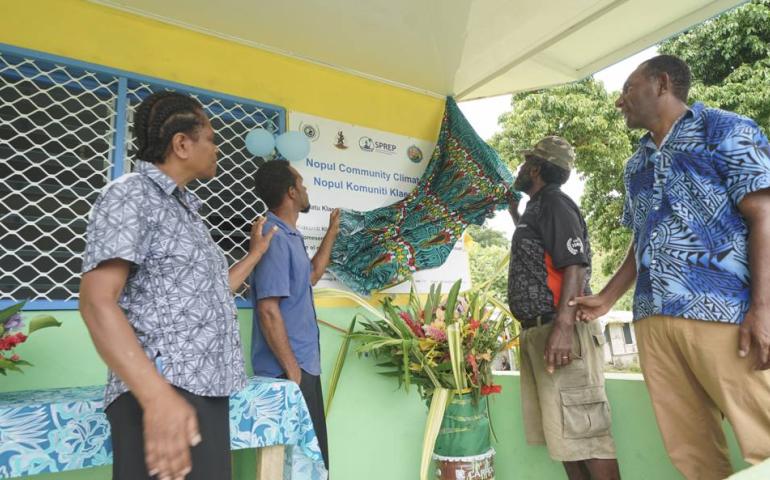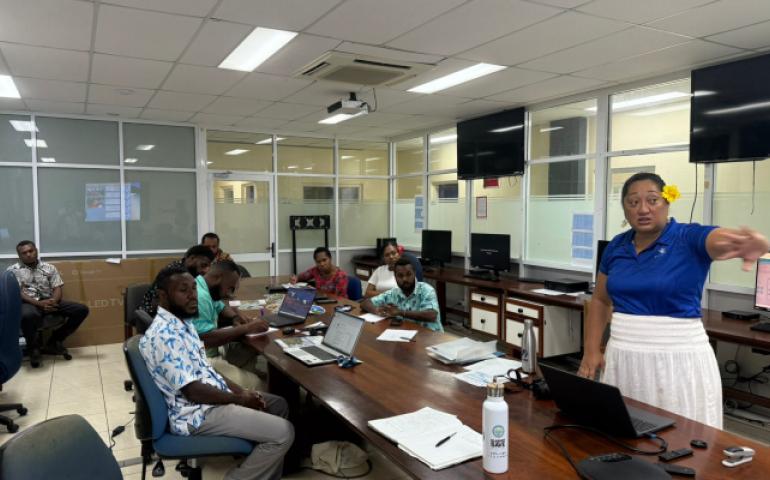Pacific tourism seals link with Pacific meteorologists
By Repeka Nasiko of Fiji Times
18 August, 2017, Honiara, Solomon Islands, PMC-4 – Tourism development is underpinned by weather and climate information, says South Pacific Tourism Organisation (SPTO) Sustainable Tourism Development Manager Christina Leala-Gale.
She said this was why it was significant that the reviewed Pacific Islands Meteorological Strategy (PIMS) recognised the sector’s dependency on weather and climate services.
“If we are looking at tourism as a key economic driver in the Pacific region, then it’s important that any tourism sector related information that comes from the met services that is for tourism planning activities has to be informed by our weather and climate information providers,” she said.
“This is why the Climate Services Roadmap and the Pacific Islands Meteorological Strategy are very important and we appreciate the fact that these two very important strategies acknowledged the tourism industry as an additional stakeholder they need to have.
“In a region that is very vulnerable to climate and disaster events it’s important for an economic sector that the Pacific region relies on to be well prepared and become resilient in the longer term”
Mrs Leala-Gale said SPTO was grateful because of the important role the organisation played in the development of regional tourism especially in the area of managing the sustainability of the sector.
“We want tourism to become a sustainable sector in the future and for that to happen we have to be well prepared for any climate and disaster event.
“This is why the linkage and the recognition in the regional framework for marine and oceans weather services and water services in the Pacific encompass considerations or key issues that the tourism sector might face.
“It will help our private sector prepare well and also for government ministries of tourism to also put these policies in place that can integrate early weather and climate information for sector preparedness.”
The SPTO manager on sustainable tourism development also explained the need for more collaboration between meteorological services and national tourism bodies.
“It has to be improved as we need to collaborate with the national met services and at the regional level as well.
“Weather and climate is something that impacts the entire region so working in collaboration with our national and regional met services is quite important for us going forward.”
She added information sharing was an important aspect of this collaboration, especially in identifying tourism sector needs.
“I think we can say that a lot of effort is happening in the national level but we have seen over the last few days that communication is a key issue in getting the information across right down to sector level and community level.
“It’s important that we get that information to the planners and also to the private sector and businesses that can plan their activities and also prepare themselves well.
“The met services have the data and they have the technical expertise but they don’t really understand what the sector needs are.
“As the users of the information, we need to be upfront with our information needs so that the scientists and the national met services can develop tailored information to meet the needs of the sector.
“For example, for diving operators, ocean temperatures would be very important for them and very site specific weather information would be useful for them.
“The met services have the technical expertise and they know what is happening with the weather and the climate but to actually respond to needs on the ground specifically that is something that is dependent on what the sector informs them.”
Mrs Leala-Gale says these efforts would now be improved as partnerships strengthen following the PMC meeting in Honiara.
“This is a starting point for us with the recognition of the sector in the PIMS and the roadmap so there will be a lot of work that will be carried out after this.
“There is a need for us to be more involved to develop a more regional approach to pass on the information to our national tourism organisations also to be more engaged with their own national met services because that is where all of the work is happening.”
SPTO is an intergovernmental organisation for the tourism sector in the South Pacific and its headquartered in Suva, Fiji. – #PMC4 #PacificMet
The Fourth Pacific Meteorological Council is being held in Honiara, Solomon Islands from the 14 – 17 August co-hosted by the government of Solomon Islands, the Secretariat of the Pacific Regional Environment Programme (SPREP) and World Meteorological Organization (WMO). This will followed by the Second Pacific Meteorological Ministers Meeting (PMMM) on the 18 of August.
The PMC and PMMM is supported by the Government of Solomon Islands, SPREP, WMO, Government of Australia through the Climate and Oceans Support Programme (COSPPac) and Pacific Australia Climate Change Science and Adaptation Planning Programme (PACCSAP), Government of Finland, National Ocean and Atmospheric Administration (NOAA), United Nations Development Programme through the Resilience in the Pacific (SIDS) project.
The PMC consists of members of the Pacific National Meteorological and Hydrological Services supported by its technical partners, regional organisations, non-government organisations and private sectors.
This article was developed by a Pacific Media Team of Reporters currently providing coverage on the Fourth Pacific Meteorological Council in Solomon Islands. This activity coordinated by SPREP is supported by a partnership between the Government of Solomon Islands, SPREP, Australia funded project (Climate and Oceans Support Program (COSPPac) and UNDP Disaster for Pacific SIDS (RESPAC) project.
The views and opinions expressed in this article are those of the writer and do not necessarily reflect the views of the Secretariat of the Pacific Regional Environment Programme (SPREP) or the United Nations Development Programme (UNDP)both of which provided funding for generating media articles.
- Log in to post comments



